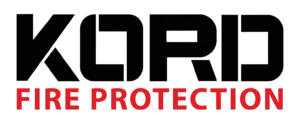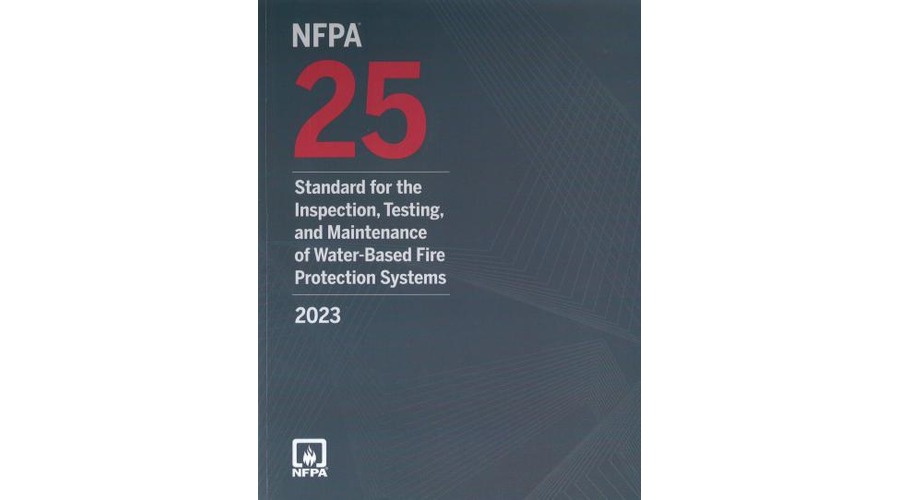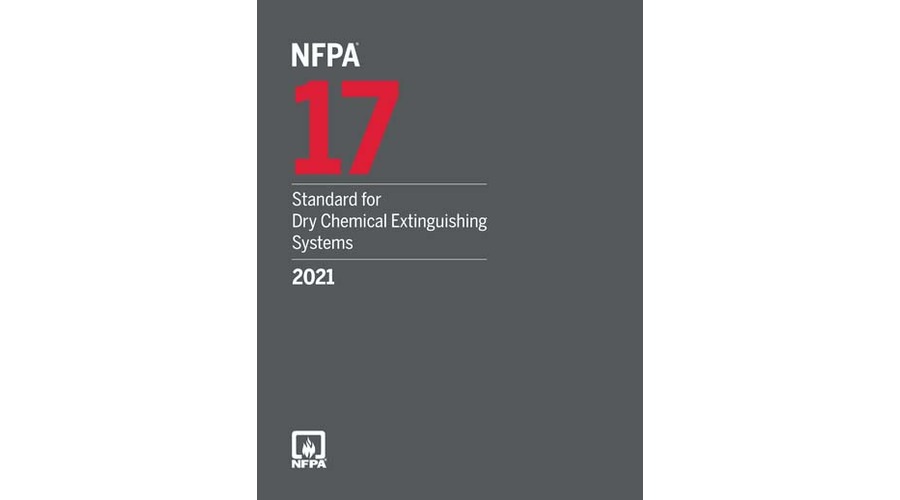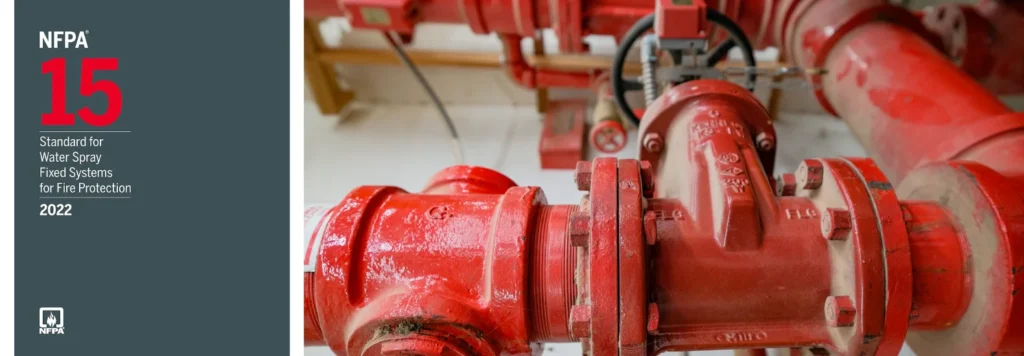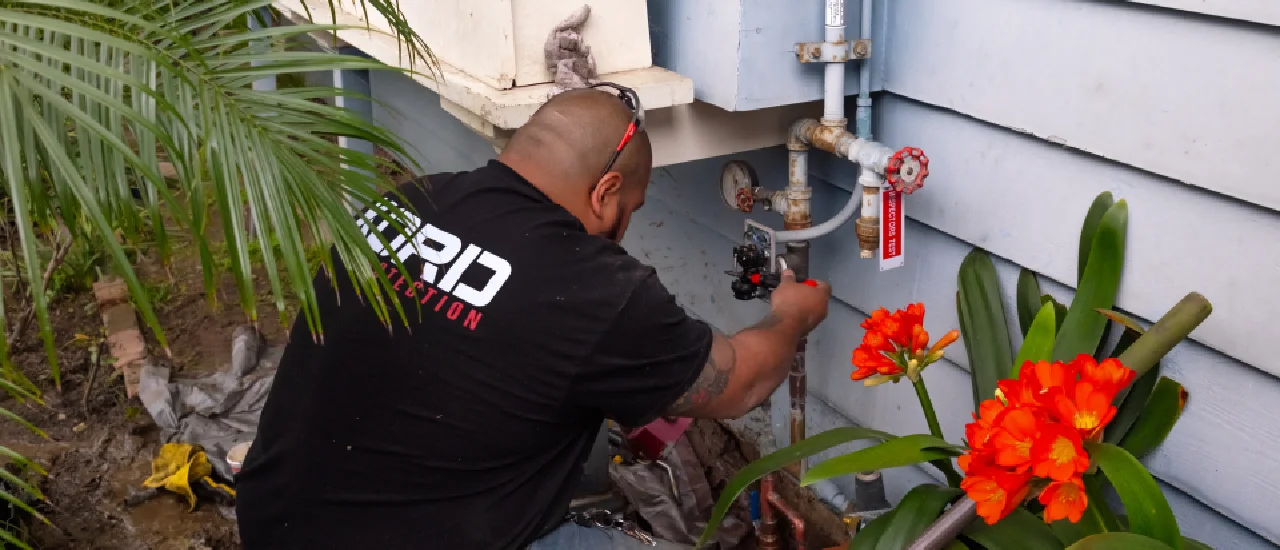

What can a home fire sprinkler system do?
Fires are responsible for more deaths than all other types of natural disasters combined — and most of these deaths occur in homes. While smoke detectors are essential in protecting your home and family, they aren’t sufficient. A comprehensive home fire sprinkler system that includes a residential fire sprinkler system can save the lives of your family and pets and your property, reduce carbon emissions from a fire, and increase the value of your home.
The Benefits of a Home Fire Sprinkler System
The biggest advantage of a residential fire sprinkler system is how quickly it can contain a fire. If a fire starts in your home, you only have three minutes to escape, and a sprinkler system can stop a fire in 90 seconds. Other benefits of a sprinkler system include:
Saving Lives
If you have working fire alarms in your home, you cut your risk of dying in a fire by 50%. If you have fire alarms and a sprinkler system installed, you can reduce your risk of dying in a fire by 80%. Fire sprinkler systems are more effective than any other safety device when it comes to saving lives. In addition to protecting the lives of your family, a sprinkler system will also protect the lives of the firefighters who respond to your house fire.
Kordfire Sprinkler Can Protect Your Home
See why fire sprinklers for the home can be the difference between saving your home and losing it. This LinkedIn post highlights a showcase of a test conducted without sprinklers and one with.
Protecting Property
According to the National Fire Protection Association (NFPA), installing sprinklers can reduce property damage from a fire by 70%. This is largely because they work automatically and immediately to control fires so quickly that they don’t have the opportunity to spread.
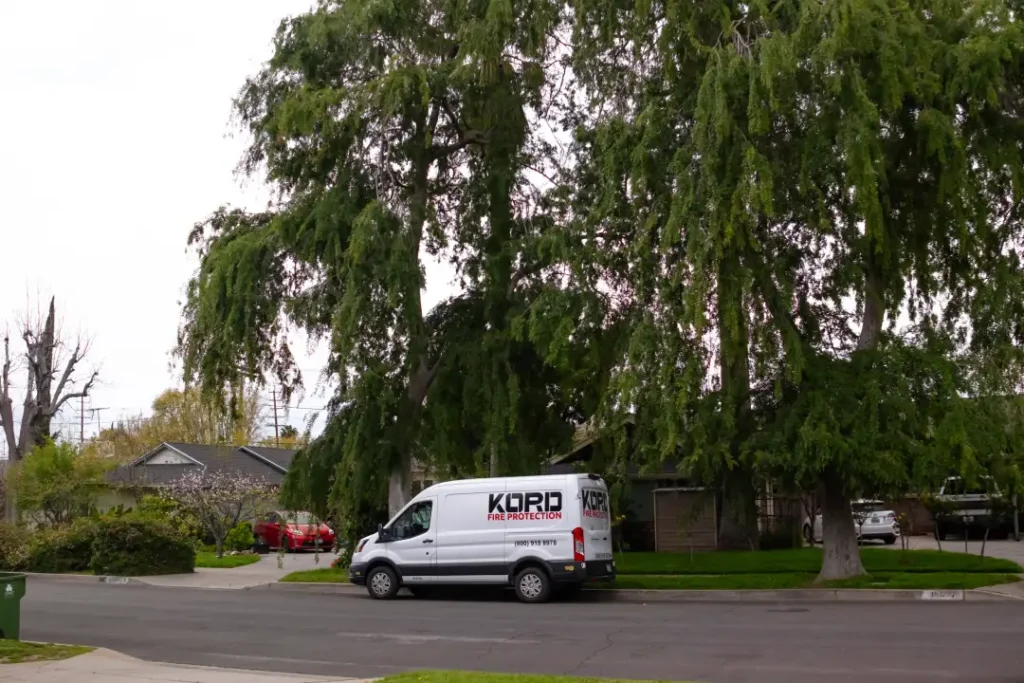

Eliminating Environmental Damage
Fires contribute to carbon emissions and greenhouse gases that pollute the air and water. Eliminating fires from spreading is the best way to reduce environmental damage and toxins. In areas that are prone to out-of-control wildfires, preventing a residential fire may also prevent a devastating natural disaster.
Increasing Your Property Value and Saving on Insurance Premiums
According to research by Harris Interactive, 74% of U.S. homebuyers report they’re more likely to buy a home with a fire sprinkler, and 69% see it as an amenity that adds value. You may also be able to save money on your homeowners’ insurance premiums, with some insurers offering discounts that range from 5% to 30%.
Common Misconceptions About Residential Fire Sprinklers
Despite the undisputed benefits of a home fire protection system, some persistent myths remain that dissuade people from installing them.
Myth #1: Sprinklers Leak
Sprinklers are pressurized to the same standards as residential plumbing systems, so they’re no more likely to leak than the pipes leading to your shower. Unlike your plumbing system, however, sprinkler pipes are rarely used. As a result, they’re not subject to the same amount of wear and tear.
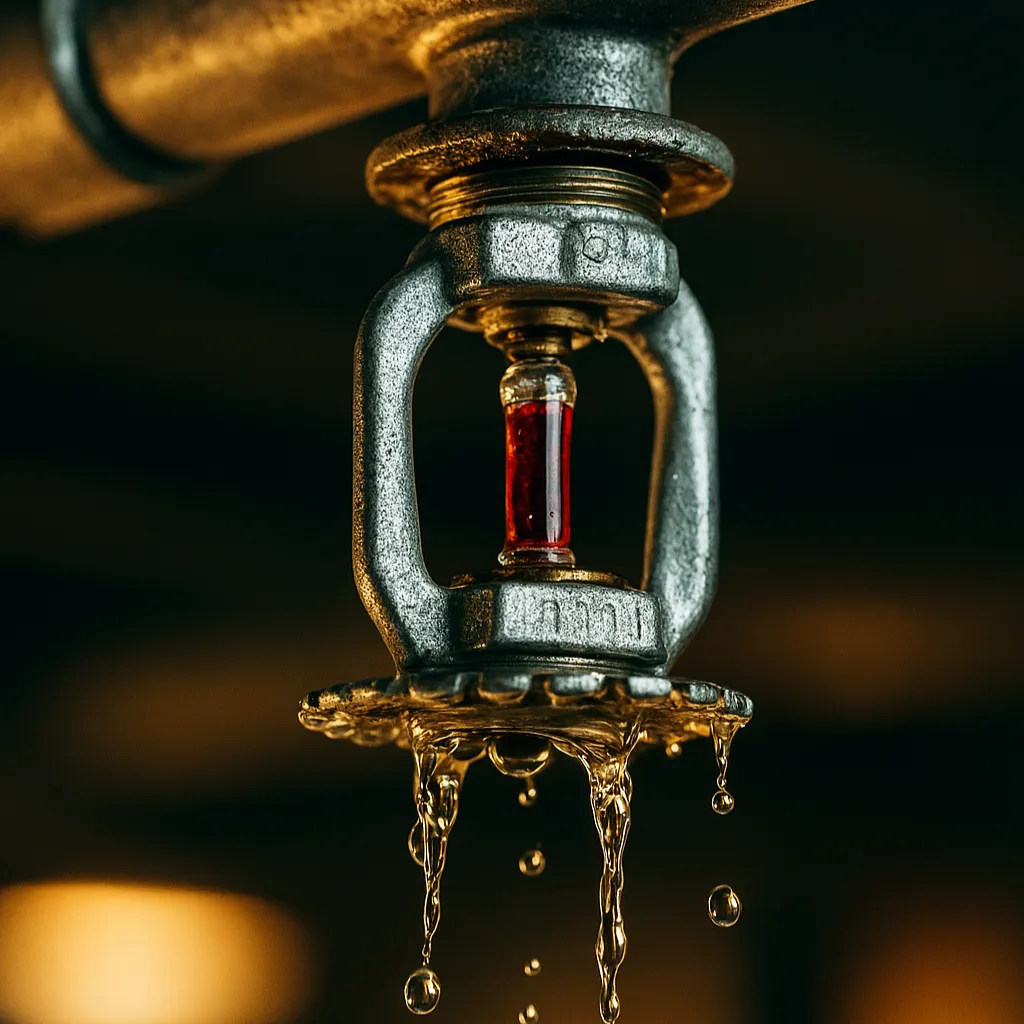

Myth #2: Water Causes More Damage Than Fire
The best way to limit damage from a fire is to extinguish it quickly. Home sprinkler systems use much less water at a much lower pressure than fire hoses and hydrants. Because they only activate in areas where heat is detected, whatever water damage occurs is limited to the immediate area. An uncontrolled fire can easily destroy your entire house before firefighters can respond.
Myth #3: Sprinkler Systems Are Ugly and Obtrusive
Modern residential fire sprinkler systems can be mounted inconspicuously to blend in with your home’s style and decor. The pipes can be hidden behind walls or ceilings, just like the rest of your plumbing pipes.
How Fire Sprinklers in Residential Buildings Work
A residential fire sprinkler head contains a plug that holds back water. The plug is typically made of solder or is a glass tube filled with glycerin. The heat will melt the solder or expand the glycerin, causing the glass tube to break, either of which will release water.
Each sprinkler head operates independently, limiting the potential water damage. Only heat activates the sprinkler system, so you don’t have to worry about setting off the sprinklers if you accidentally fill the kitchen with smoke while cooking.
The Residential Fire Sprinkler Installation Process
If you’re installing a residential fire sprinkler system in a new build, it can easily be added at the same time your plumbing system is installed. If you’re installing one in your existing home, certified technicians will come out and tap into your water system. They’ll run pipes throughout your house and across the ceiling. They’ll install sprinkler heads where they offer the best coverage.
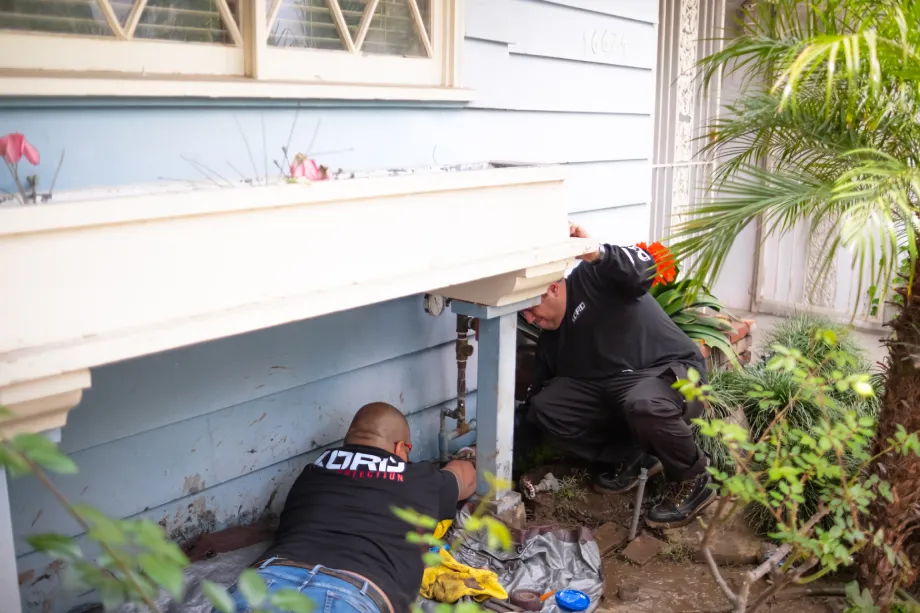

Protect Your Home With a Residential Fire Sprinkler
Every home needs a fire sprinkler system. KORD Fire Protection installs NFPA-compliant sprinkler systems throughout all of southern California. Our licensed and certified technicians can design, maintain, and install a custom sprinkler system for your home. With over 20 years of experience, we guarantee your sprinkler system will meet the highest safety standards to protect your family and property. Reach out today for a free quote.
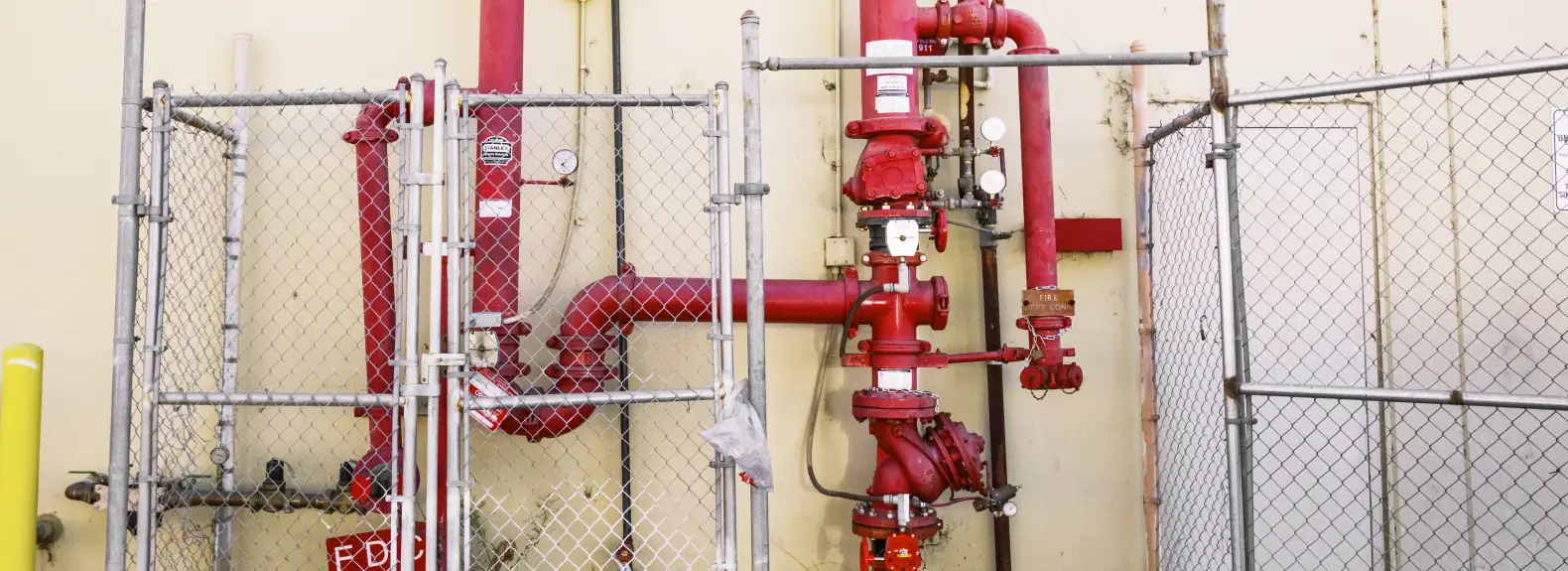

Protect Your Property
Get the latest fire safety tips delivered straight to your inbox.
